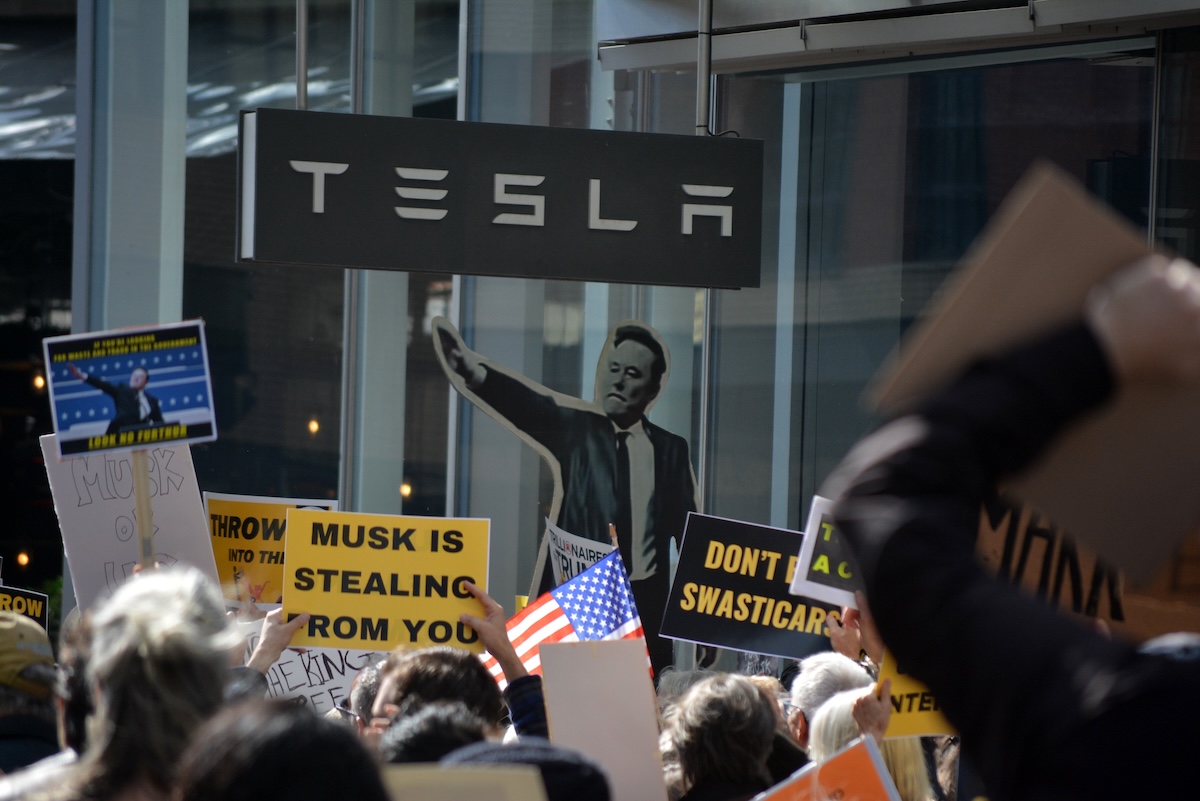
One risk of tying your company’s brand too closely to its CEO is that your fortunes can rise or fall with the public perception of that individual.
Before the election, Elon Musk had been a major driver of Tesla stock.
In fact, one of Tesla's criticisms has long been that its valuation is due more to a “cult-like” following rather than pure fundamentals, such as car sales.
Elon Musk’s magnetic persona has helped push Tesla’s stock price higher, but since the start of this year, everything has changed.
As Musk has waded deeper into politics — pouring $230 million of his vast fortune into Donald Trump’s presidential campaign and then heading up the controversial Department of Government Efficiency (DOGE) effort for the White House, his persona has become toxic.
Musk's about-face has taken an immense toll on Tesla's brand, as evident in shares of TSLA shedding nearly one-third of their value year-to-date.
Then on Wednesday, Tesla reported that global vehicle deliveries fell 13%, another sign of the growing backlash among car buyers against his outspoken politics.
Just as interesting, shares of TSLA rose about 5% in midday trading on Wednesday after Politico reported that Musk would soon be leaving the White House and return to running his companies.
It could be seen as investors breathing a sigh of relief.
Damage control could be tricky for Tesla
Tesla shareholders were already beginning to have concerns with Musk’s foray into politics even before he became a full-fledged member of the Trump administration.
That concern has only grown over the past few months — and with good reason. According to KC Boyce, vice president of market analysis firm Escalent, Musk has essentially alienated Tesla’s core consumer groups through his divisive politics.
“Liberals and middle-of-the-road voters constitute the majority of the market, period, and a substantial majority of the EV market," he said.
"While 'middle of the road’ voters aren’t quite as turned off by Tesla as liberals are, those groups are less likely to consider a Tesla for their next vehicle."
The problem for Tesla and its shareholders is the backlash to Musk and his company is not only happening in the U.S., but in countries across the globe.
This damage to the brand has not been lost on Wall Street analysts.
“We struggle to think of anything analogous in the history of the automotive industry, in which a brand has lost so much value so quickly,” JPMorgan analysts wrote last month.
Tesla’s Q1 sales have been even worse than analysts were predicting.
JPMorgan projected 355,000 deliveries for the quarter, down from a prior forecast of 444,000 units. UBS analyst Joseph Spak lowered his Q1 delivery estimate last month to 367,000 vehicles from 437,000 vehicles.
Meanwhile, Baird analysts projected 369,000 vehicles to be delivered in the quarter.
But in fact, Tesla delivered just 336,681 vehicles in Q1. The numbers were a “disaster” according to Wedbush Securities analyst Dan Ives.“disaster” according to Wedbush Securities analyst Dan Ives.
Meanwhile, Baird analysts projected 369,000 vehicles to be delivered in the quarter.
But in fact, Tesla delivered just 336,681 vehicles in Q1. The numbers were a “disaster” according to Wedbush Securities analyst Dan Ives.
"Musk needs to stop this political firestorm and balance being CEO of Tesla with DOGE," he wrote.
Hargreaves Lansdown analyst Matt Britzman wrote that even though “many investors were already preparing for a soft number,” the results are still a disappointment.
“A drop from last year is no surprise, but the scale is worse than many had expected," Britzman wrote.
Your email address will not be published. Required fields are markedmarked